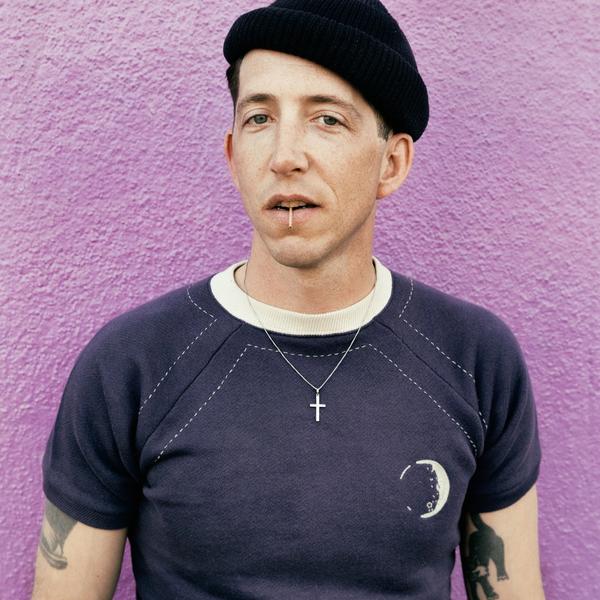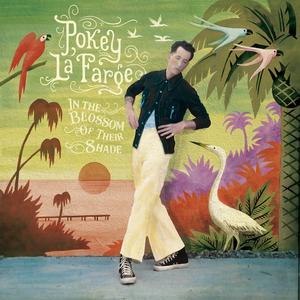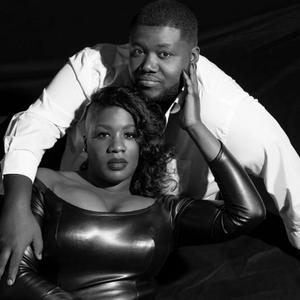




Link copied

Pokey LaFarge is a curious person. Calling in from Los Angles (where the Illinois native is now based), he’s initially not so much concerned with discussing his new album, In The Blossom Of Their Shade, as he is with trying to pin down the precise nature of my accent - eventually declaring himself refreshed to be talking to someone without a “posh London voice”.
But such curiosity is an integral part of who LaFarge is. It's something he's proved over his now 15-year career, which began with the release of Marmalade, his first album, in 2006.
Right from the start, it was apparent: here was a man with eclectic and unusual tastes, fusing a mixture of ragtime, swing, jazz and blues to create a sound that was simultaneously old and new, speaking to the present in the language of the past.
A spell with Jack White’s Third Man empire produced a string of equally fascinating records earlier in his career. Upon his move to New West Records, he released 2020's Rock Bottom Rhapsody, which, as the title suggests, came out of a period of personal crisis.
The pandemic has brought a swift follow-up. In The Blossom Of Their Shade is a brighter, sunnier album than before; one that very much reflects Pokey’s new beliefs about the nature of art and music.
Pokey LaFarge is premiering his new single, 'Mi Ideal', exclusively with Holler - listen below now:
Tell us a bit about your approach to In The Blossom Of Their Shade.
This is my first self-produced record. I wanted to add more simplicity and rawness to it, so we recorded everything live straight to tape. The mojo and the soul were already baked into the recording on the tape - a 1970s Ampex, almost certainly the sort of tape that Van Morrison would have done Astral Weeks on!
I love that record, the sound of it, the musicians in a big room and their instruments weaving in and out of focus like a dream. That was more or less the inspiration - there's not much else added either, just harmony vocals.
Simple is really hard to achieve though, isn’t it?
Well, of course, simplicity is relative - I don’t know if that’s the intention for many people! So much of what’s released as pop music today is all built around drum tracks and synthesizers; everything on a grid making this perfect thing.
Simplicity to me - which is kind of just common sense - is a person with a guitar and a piano. You only need one instrument to make a song - you don't even need a physical instrument; you just need a voice.
“Songs can be simple if you just let them breathe”
Part of the skill in that is knowing when something’s finished, I suppose.
Well, it’s like soccer - it’s not what you're doing with the ball, it’s what you’re doing without it. It’s the same with music - it’s what you’re not playing.
It’s all about space for me. I didn’t really get that at the beginning. When I was in my trad-jazz phase, I was all about filling every single space. I dialled back and became a little more relaxed in my later 30s, leaving songs more open so people can anticipate something that’s maybe not actually there and feel it anyway.
I do wonder if there was a certain disconnect with my own personal experience, a lack of confidence in my own song, in my own voice and its musicality, so I felt like I had to cover it up with a bunch of different things.
That said, some of my favourite producers are the ones who are able to put 15 or 20 different voices and instruments on something. Phil Spector, Dan Auerbach, they can do that, it’s absolutely incredible, next level. For me, I guess I don't have that kind of talent. I try it but it doesn’t work for me.
When I’m given too many decisions, I can’t function as well. It’s like going grocery shopping when you haven’t eaten!
Do you still write in the same way?
No, not at all. I‘ve experienced more life; I’ve suffered, I’ve been redeemed, I’ve overcome. I am no longer writing to please others, so it’s more at a point of giving than receiving. My heart is different, you know.
When you say writing for other people, how did that manifest itself?
When I first started playing music, I didn’t have anyone around me to teach me. I was teaching myself and I would come across people that would serve my evolution. It’s so interesting how that happens, how people come along at the right time, but I bought into a lot of lies, as everybody does at certain times in their lives.
I found my identity in other people’s approval of my work, and once I started to get that approval then I was hooked on the drug and kind of overdosed on it. You don’t know why you’re doing it then, you don’t know who you are or where you’re going because you’re too lost in this fantasy.
I was writing for other people to gain approval, to gain more status, to sell more records, to get more fame, to make more money. But that was never the intention. For a few years, it was really dark; the aftermath of that was basically Rock Bottom Rhapsody, and in the last two years I’ve been able to come out of that through the grace of God.
Was there an actual turning point, a pivot?
Unfortunately, some people have to really hit rock bottom or have a near-death experience before life’s illusions can be revealed. For me, that happened. I had an encounter with God in January 2019 and it’s been quite a transition since that time.
I’ve found peace and I’ve found my true calling, which is still music, but the songs have really been able to flourish. So, I'm rejoicing in the face of trials. It’s been a really interesting juxtaposition writing music during this period, when people have been so scared, so angry and so uncertain.
I guess the fact that I used to live more in anxiety and fear was reflected in how fast and jaunty the music was, whereas now my music is a lot more relaxed – a tighter groove but a more released one, it just flows. Instead of singing the blues, I’m singing prayers now.
I listen to a lot of reggae, specifically to early rocksteady, and that just blows my mind. Those guys are listening to R&B people like Smokey Robinson and the Temptations, Ray Charles, Sam Cooke while they’re listening to country artists. They’re taking those records from America and flipping the grooves almost opposite.
I’ve also always been fascinated by music that could be said to come from just one person, like bluegrass with Bill Monroe – he takes waltzes that come from Germany, Mexican folk songs, traditional Django gypsy jazz, blues from Bessie Smith and puts it all together in one style. That’s always been my pursuit in my music, a common thread – to take multiple genres and put them together.
The folk myth of reggae, of course, is that all those guys were listening to US radio stations and the reception was so bad that the signal kept fading in and out, and that gave that swaying woozy groove to the music they made.…
Dude, I love that myth! It’s so crazy.
---
In The Blossom Of Their Shade is out on October 15 via New West Records. Read our review of the album here.
Photography by Eliot Lee Hazel





